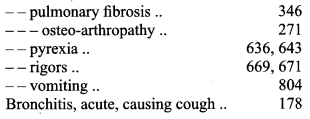Cries of “Jesus!” could be heard in the crowd at the opening of The Book of Mormon at Melbourne’s Princess theatre on Saturday night – but not the way the Church of Jesus Christ of Latter-day Saints would have liked.
Stretching genre boundaries and balancing intelligent commentary with damn catchy tunes, Trey Parker and Matt Stone’s celebrated musical had the packed theatre cackling with delight.
The Book of Mormon is a coming-of-age story of two young, extremely likeable Mormons on their mission to spread the Lord’s word. Elder Price and Elder Cunningham (terrific international leads Ryan Bondy and AJ Holmes respectively) are polar opposites on the same journey. Elder Price is a Ken doll cutout, a Bible devotee and Mormon star in the making. When he’s reluctantly paired with Elder Cunningham, a bumbling optimistic dork and compulsive liar, Elder Price is miserable. He prayed he’d be sent to Orlando but God has let him down. Instead, his call to serve is sending him to Africa.
Along with co-creator Robert Lopez, Parker and Stone have produced a work of comedic genius that exceeds critical hype and hyperbole: The Book of Mormon is an exceptional, visionary and all-round entertaining musical masterpiece, genital jokes and all.
After years of successful seasons on Broadway and London’s West End, The Book of Mormon has finally turned up down under. With nine Tony awards, enthusiastic reviews worldwide and – in what is truly a stamp of approval – sold-out shows in Salt Lake City, the Mormon capital of the US, it will likely be a bestseller during its Australian season.
Just to put this in perspective: by the end of its three-month, eight shows-per-week stint at the 1,488-seat Princess theatre, audiences flocking to see The Book of Mormon are likely to outnumber the Australian Mormon population (which, according to the church, is about 150,000) by approximately 20,000.
Given the predominantly US-centric nature of the Mormon faith, why would this production be of interest to Australian audiences? For one, the drawcard of Stone and Parker’s wonderfully depraved minds. Best known for being the brains behind the long-running cartoon series South Park, the duo started their careers with the low-budget feature film Cannibal: The Musical! and have long dreamed of making something for the stage. With The Book of Mormon they have created musical theatre for the masses.
The Book of Mormon is not merely a send-up of the Mormon church either. Commenting on thepolitics of gender and colonialism with songs such as All-American Prophet, Man Up and We Are Africa drives home the fact that – like the relatively young Mormon faith – Australia was a nation founded not too long ago, and we still see history through a predominantly white lens.
The opening-night crowd seemed initially unsettled about the portrayal of racial and, to a lesser extent, sexual politics. But early indicators of self-awareness and nod to parochial privilege result in hard-earned jokes that ease the audience into fits of laughter. Instead of merely portraying a Lion King-style version of Africa, The Book of Mormon directly evokes the cartoon itself. But when the reality presented to the missionaries – in the form of poverty, famine and widespread illness, as well as the uproariously catchy Hakuna Matata send-up Hasa Diga Eebowai (“having a saying makes it all seem better”) – isn’t the Disney World fantasy they had imagined, it becomes clear The Book of Mormon has a lot more (always on point or politically incorrect) things to say.
Inevitably, given its creators, The Book of Mormon sprays offensiveness all over the crowd in the form of delightful expletives and visceral imagery. But most of the really cheap shots – like digs at Mormons’ special underwear – have been avoided. For all its crassness, The Book of Mormon is fundamentallyabout self-belief and the power to make change for good, andthere’s an intense optimism to the production.
Joseph Smith published The Book of Mormon in 1830 – two decades before the gold rush saw increased naval traffic south of the equator. According to the Mormon church, a couple of decades after Smith’s 1823 discovery of the infamous golden plates at a hill near his home, the first Mormon missionaries arrived on Australian shores. Today, the church claims to have 309 local congregations, six missions and “almost 150,000 members” in Australia. Similar claims have been made about the UK, with 190,000 members quoted in 2008. (The Book of Mormon has been running up ticket sales in the West End since 2013.)
Instead of turning the other cheek, the Australian branch of the Mormon church has followed the lead of its US counterparts and taken to publicly condemning the musical that satirises the religion, undertaking a billboard, TV and online PR campaign that includes explanatory videos for those curious about its doctrine in light of the The Book of Mormon tour (updated with an Australian accent).
Still, the heart of The Book of Mormon is its ability to be stand alone as a musical outside of its satirical bent. It’s a homage to the greats of Broadway with a chorus line of crisp white shirts, black ties and (temporary) sequinned vests, and is chock-full of hilarious songs, high-energy dance numbers and an outstanding cast.
Local cast members include Rowan Witt as the camp Elder McKinley and Melbourne Theatre Company regular Zahra Newman as Nabulungi, standouts among a stellar principal and supporting line-up that provide an unbeatable vocal range and seemingly unlimited physical stamina.
The success of Eddie Perfect’s Shane Warne: The Musical and Casey Bennetto’s Keating! demonstrated Australians’ ability to laugh at our homegrown heroes. The Book of Mormon, with its deep satirical sensibility, songs that beg to be played on repeat and good-natured poking of fun at all things sacred, is thus the perfect show for local audiences. We might just have found our new religion.


